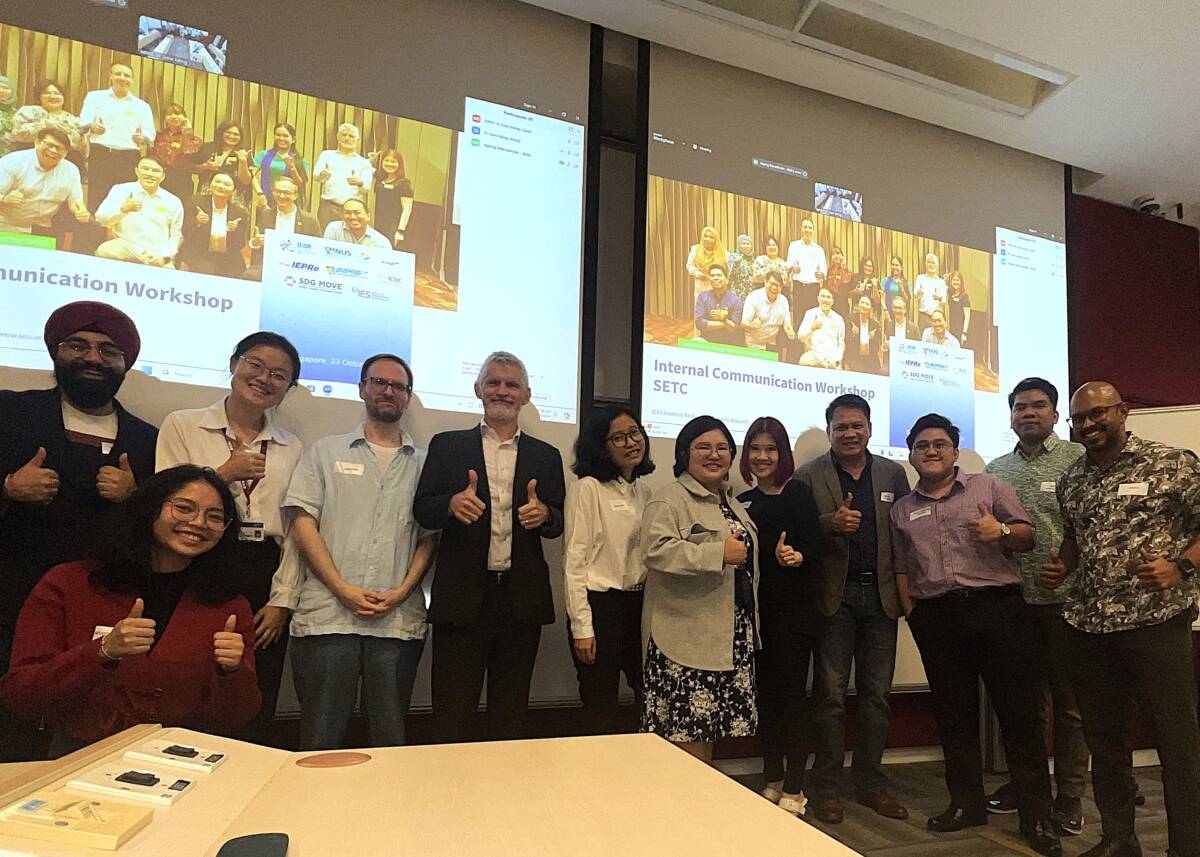Singapore, 23 October 2024 – In the field of energy transformation, the value of a captivating narrative cannot be overstated, as it helps clarify public sentiment, assist the government in formulating policies, and represent social attitudes about the debate on energy transition (CASE Indonesia, 2023).
Knowing the urgency and empowering narrative in this issue could translate difficult and technical knowledge into relevant, understandable concepts (Hermwille L, 2015), which are critical for raising public awareness and support for addressing our common concerns with the climate crisis that we are currently experiencing.
Furthermore, during the Singapore International Energy Week 2024, the Institute for Essential Services Reform (IESR) and the Institute for Climate and Sustainable Cities (ICSC), are conducted Communication Workshop for Southeast Asia Energy Transition Coalition (SETC) Partners on Wednesday, October 23, 2024, at the Lee Kuan Yew School of Public Policy (LKY SPP) of the National University of Singapore.
This workshop effectively covered essential subjects linked to compelling how energy transition is conveyed in each ASEAN country, as well as how best practices for winning the narrative at the micro level can have an impact on collective success at the macro level.

Ira Dominique Guerrero, External Communications Manager ICSC Philippines shares her experience that to engage more people into the energy transition discourse, we need to make the topic as well as the conversation resonate with them.
“When we talk to communities who do not have prior knowledge on energy, we need to translate the technical jargon so they can understand the issue and are willing to build their own capacity to comprehend the issue,” Ira said.
Léa Klein, Senior Director of MakeSense Asia then continued by explaining what her organization’s effort in narrating energy transition issues. Building an enabler community is the most successful approach to bring more people together to talk about energy transition.
“As we need a new face to preach about energy transition, we don’t limit ourselves by training non-energy people but share the same values as us,” she said.
Media plays a crucial role in shaping the narrative climate and energy transformation. Therefore, understanding media needs would be beneficial.
“As a media, we always get thousands of news pitches but what is always attracting us is on the point of contentions, and unique perspective,” Robbin Hicks, Deputy Editor, Eco Business Singapore explained.
Robbin highlights that the media wants to see more insight from the climate and energy transition issue across Southeast Asia. Therefore, research results from each country become the interesting part and material for the newsroom.
Energy and climate are inseparable from people’s lives. The way scientists, Think tanks, NGO, and activists talk about climate and energy issues is sometimes different from the way people mostly talk about it. Thus, efforts are needed to narrow this gap by translating the jargon so it can be digested easily from the energy-sector-people. Meanwhile capacity building for the like- minded, even not coming from an energy-background people, also needed to grow the narrative even bigger.

